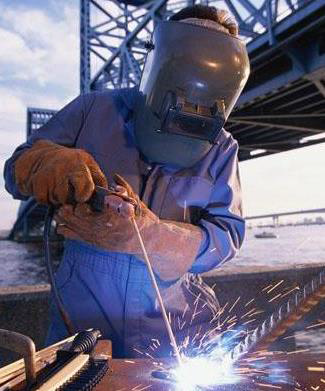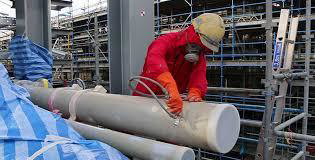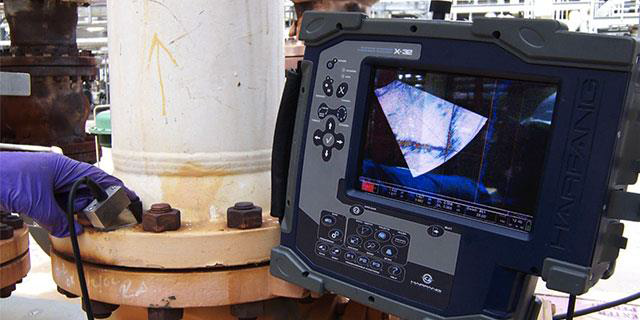COURSE OVERVIEW
FE0113(GA2) : API-579 and ASME PCC-2: Repair Practices

OVERVIEW
| COURSE TITLE | : | FE0113(GA2) : API-579 and ASME PCC-2: Repair Practices |
| COURSE DATE | : | Jun 10 - Jun 13 2024 |
| DURATION | : | 4 Days |
| INSTRUCTOR | : | Mr. Mahmoud Shama |
| VENUE | : | Al Khobar, KSA |
| COURSE FEE | : | $ 4500 |
| Request For Course Outline | ||
OTHER SCHEDULED DATES
| Date | : | Mar 04 - Mar 07 (4 Days) | Location | : | Dubai, UAE | Classroom Fee (US$) | : | $ 4500 | Course Info |
| Date | : | Sep 09 - Sep 12 (4 Days) | Location | : | Istanbul, Turkey | Classroom Fee (US$) | : | $ 5000 | Course Info |
Course Description
This practical and highly-interactive course includes various practical sessions and exercises. Theory learnt will be applied using our state-ofthe-art simulators. The latest ASME Post-Construction Code is an extension of the current API standards for Risk-BasedInspection (API 580, API 581), Fitness-For-Service assessment (API 579), Damage Mechanisms (API 571) and repairs. They are a practical and important addition to the ASME design and construction codes, their objective is to prevent failures by timely detection and analysis of degraded conditions, and application of the right repair technique. In this highly practical course, participants will learn how to (1) plan inspections, (2) evaluate inspection results and calculate the remaining life of corroded and degraded equipment, and (3) select and implement the right repair by applying the new ASME Post-Construction Codes (PCC). The course will follow the same outline as the ASME PCC Codes, making the course notes a practical and handy reference to illustrate and explain the various requirements of the new ASME PCC codes. Further, the course will review the recommended practices of API 579 and API 571 and how they can be applied on Fitness-for-Service and damage mechanisms affecting process plant equipment. This course is design to provide participants with a detailed and up-to-date overview of API-579 FFS and ASME PCC 2 repair practices. It covers the scope and limitations of API 579, fitness-for-service engineering assessment procedure, remaining life assessment and concept of remaining strength factor; the remediation methods including in-service monitoring, assessment techniques and acceptance criteria and the identification and characterization of damage mechanisms; the various methods of FFS assessments and their application to plant equipment/piping; assessing pitting corrosion and proper selection of pitting charts; the ASME PCC-2 standard as well as the applicability and limitations of repair methods covered by ASME PCC-2; the application of welded repairs and mechanical repairs for non-welding repairs; and the NACE standards, material selection and requirements for piping link to course overview PDF
TRAINING METHODOLOGY
This interactive training course includes the following training methodologies as a percentage of the total tuition hours
LecturesWorkshops & Work Presentations
Case Studies & Practical Exercises
Videos, Software & Simulators
In an unlikely event, the course instructor may modify the above training methodology before or during the course for technical reasons.
VIRTUAL TRAINING (IF APPLICABLE)
If this course is delivered online as a Virtual Training, the following limitations will be applicable
| Certificates | : | Only soft copy certificates will be issued to participants through Haward’s Portal. This includes Wallet Card Certificates if applicable |
| Training Materials | : | Only soft copy Training Materials (PDF format) will be issued to participant through the Virtual Training Platform |
| Training Methodology | : | 80% of the program will be theory and 20% will be practical sessions, exercises, case studies, simulators or videos |
| Training Program | : | The training will be for 4 hours per day starting at 09:30 and ending at 13:30 |
| H-STK Smart Training Kit | : | Not Applicable |
| Hands-on Practical Workshops | : | Not Applicable |
| Site Visit | : | Not Applicable |
| Simulators | : | Only software simulators will be used in the virtual courses. Hardware simulators are not applicable and will not be used in Virtual Training |
RELATED COURSES

FE0265 : Pipeline Corrosion Management, Risk Assessment, Technical Integrity, Inspection, Remediation & Repair
- Date : Dec 08 -Dec 12 / 3 Days
- Location : Istanbul, Turkey
- Course Details Register

FE0930 : API 577: Welding Inspection and Metallurgy (API Exam Preparation Training)
- Date : Nov 10 -Nov 15 / 3 Days
- Location : Al Khobar, KSA
- Course Details Register

FE1002 : Coating Inspection
- Date : Dec 09 -Dec 13 / 3 Days
- Location : Abu Dhabi, UAE
- Course Details Register

FE0772 : Phased Array Ultrasonic Testing Level II Training & Certification (ASNT, SNT-TC-1A)
- Date : Nov 18 -Nov 29 / 3 Days
- Location : Abu Dhabi, UAE
- Course Details Register
